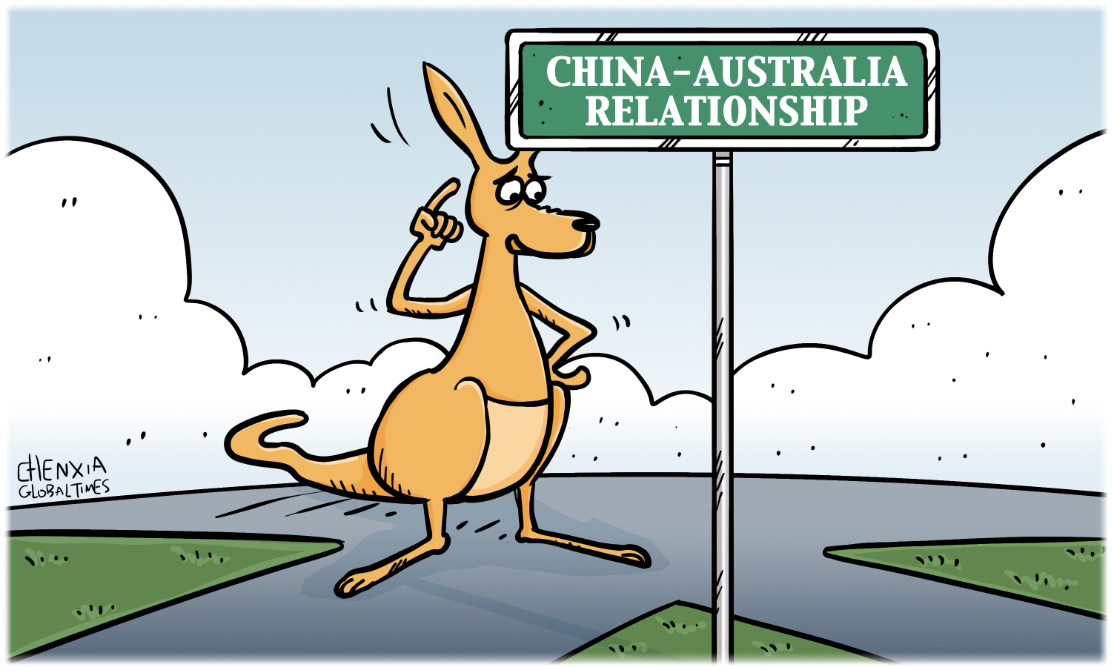
Australia
Chinese State Councilor and Foreign Minister Wang Yi met Australian Foreign Minister Penny Wong on the sidelines of the G20 meeting in Bali, Indonesia on Friday evening, the first meeting between the foreign ministers of the two countries in three years.
This meeting is arguably the most substantive dialogue between the two major trading partners, during which both ministers raised their respective concerns. Particularly, Wang called on Australia to regard China as a partner rather than a rival and seek common ground while shelving differences, which indicates that it's more important to seek common ground between the two sides despite the various differences, which is very crucial.
China and Australia elevated bilateral ties to a comprehensive strategic partnership in 2014, which has been in name only since the relationship gradually deteriorated from 2017. Thus it is significant that both ministers stressed the importance of adhering to such strategic positioning, which means that the nature of China-Australia relations has not fundamentally changed, Chen Hong, president of the Chinese Association of Australian Studies and director of the Australian Studies Centre at East China Normal University, told the Global Times.
Wong mentioned that the meeting with Wang was a "first step" toward stabilizing the relationship. According to Chen, the emphasis on stabilization is a hint that there were ups and downs in relations in the past. It can be felt that the Australian side recognizes that the previous China-Australia relationship was not normal, while the reckless and provocative rhetoric toward China has significantly reduced under the current government.
Although such signals to repair the relationship are appreciated by Beijing, pragmatic moves rather than just verbal statements should be adopted by Canberra when "stabilizing" relations. It is not enough for Australian politicians to just stay on the level of will.
"The root cause of the difficulties in China-Australia relations in recent years lies in the insistence of previous Australian governments to treat China as an 'opponent' and even a 'threat,' Wang noted, adding that Australia's words and actions have been "irresponsible." In his message of congratulation to new Australian Prime Minister Anthony Albanese, Chinese Premier Li Keqiang highlighted the need for both sides to "review the past, look into the future." Australia should be aware that it is the lack of rational judgment on China that has led to even more radical rhetoric than that from the US, and the free-fall decline in China-Australia relations.
That is why it is crucial for Wang to urge Canberra to develop a rational and correct perception toward China. Only with the right mindset can both sides get the job done. Chen noted that the Albanese government is gradually formulating and implementing its diplomatic and security policies after taking office, and the influence of the previous government can be observed in this process, especially in terms of perceptions toward China, such as "Beijing is assertive" and "it is China that has changed." Such cognition, highly shared among Western countries, is determined by the long-standing alliance between Australia and the US, as well as Australia's core status in the Anglosphere.
Clearly, many politicians in the Australian Labor Party, including Albanese and Wong, cannot avoid being affected by Washington's hostile attitude toward China, such as the prime minister's preconditions for restarting the China-Australia relationship, saying that China needs to "remove sanctions" imposed on Australia in order to "improve relations." In fact, China initiated anti-dumping investigations into certain Australian exports in accordance with laws and regulations, and then imposed anti-dumping measures accordingly. China's probe into products from countries such as Australia is in accordance with WTO rules. Australia should abandon its double standard when analyzing China's trade remedy measures adopted to safeguard its reasonable interests.
Australia has recently expressed its willingness and stance to ease the bilateral relationship. On the key issue of tariffs and trade, Australian Trade Minister Don Farrell "held out the olive branch" to China, suggesting that a "compromise situation" or "alternative way" to settle trade disputes might emerge in talks between the two countries. The meeting between both foreign ministers is another step forward, and more substantive moves are believed to be on the way.
At such a critical moment, Australia should indeed be more sensible and act in its own interests, rather than following the anti-China strategy of the US, so it can truly improve its relationship with China, Australia's largest trading partner, Chen said.




